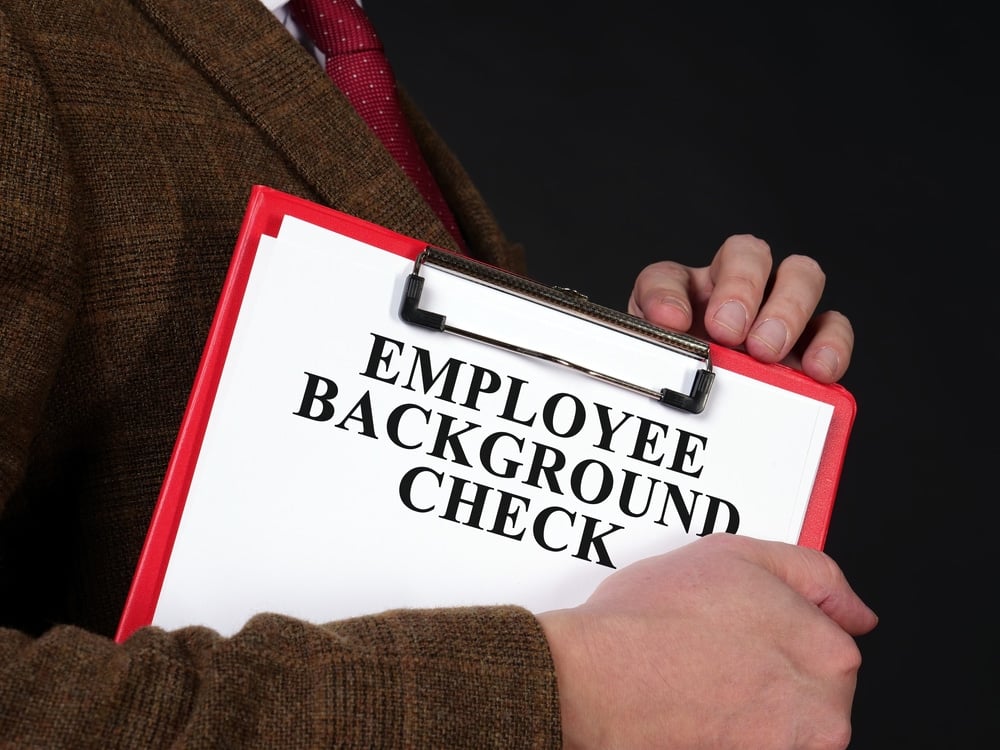Background Checks for Employment: Your Complete Guide
Cindy Ellis - September 7, 2022

Background checks are often required as part of pre-employment screening or to verify your eligibility for certain occupations. Background checks are especially common for those applying to government or security-related positions. That being said, the process of background checks for employment can be confusing and leave you with lingering questions about what your background check will include.
In our article, we will answer all your questions about what can appear on a background check and why background checks are helpful for employers. We also answer your important frequently asked questions about background checks for employment so you can be fully informed about this necessary step.
What Shows Up on a Background Check?
Many individuals are often confused about what exactly shows up on a background check. Simply put, your background check is a report containing all your records, such as criminal, civil, driving, and sometimes credit score information.
These items will be used by your potential employer or the agency requesting the check to verify your eligibility for a specific position and that you meet general employment standards held by the company or individual in question.
You can also run a background check on yourself to get a better idea of what your potential employer is likely to find out.
Why Background Checks Are Helpful
Background checks are helpful for employers because they assist in evaluating if potential employers can perform their designated job duties properly. They also help to stop potential legal and security troubles ahead of time, as individuals with lengthy criminal records are typically denied employment for opportunities with high-level security clearances.
However, if you do have criminal and civil issues on your record, you shouldn’t lose hope of obtaining employment in a career field that interests you. Several states are working towards creating fairer hiring practices and stopping discrimination due to certain factors within background checks.
Your Employment Rights
Employment rights have two different levels – federal employment requirements and state-level employment rights and restrictions. When it comes to your background check and any items that may be an issue for potential employers, you will likely be working with state laws. Many states are implementing ‘ban the box’ laws and other employment regulations that help to prevent discriminatory hiring practices and make it clear when employers can make hiring decisions based on the information turned up in background checks.
If you have any questions about your specific employment rights, what counts as hiring discrimination, or concerns about a background check that has been completed with a potential employer, you should reach out to an employment lawyer familiar with your state’s specific regulations.
How Employers Conduct Background Checks
While some employers will ask you to obtain a background check through third-party companies, others might take charge of this process themselves. Below, you can review the steps that most companies proceed through when requesting background checks from potential employees.
- First, employers must receive your written consent to conduct a background check. Background checks without your expressed consent aren’t lawful. However, employers can offer jobs contingent on your passing a background check. The employer must also tell you which areas they will be checking specifically, such as criminal, civil, credit, or driving records.
- The employer will conduct a background check based on state laws and regulations. Employers must adhere to these rules about the information they are legally allowed to check and what they can do with the information they find.
- Employers may conduct checks of the references you listed when applying for the job, and they may also look through public records to find any other instances of criminal or civil record issues.
- The employer may ask you to take a drug test as part of the pre-employment background check screening. Drug tests are especially common for jobs involving children, driving, or working in a dangerous environment. How your drug test is performed, and the results received depends on the specific employer’s process.
- After all background check and drug test information is received, the employer will review the results. They will then make a hiring decision based on a holistic review of everything and whether or not they feel you will be able to perform the duties of the proposed job in addition to fitting in with the overall company environment.
Knowing the steps for the background check process can help you better prepare yourself and relieve any anxiety you may have surrounding obtaining a background check.
Background Check FAQs

There can be a lot of confusion surrounding background checks, which is why we give answers to your frequently asked questions about background checks for employment below.
Can Failing a Background Check Ruin My Job Offer?
Whether or not failing a background check ruins your job offer depends on if the employment opportunity was contingent on having a clean background check. You should check with your potential employer directly for information about this. In some instances, you may be able to work with your potential employer if items on your background check raise red flags.
Which Information Items Do Employers Consider Red Flags?
Background checks can turn up many different things for employers to review. Items on your report that might be considered red flags are significant criminal history or arrest records, complex civil records due to lawsuits, and DUIs. Employers may view these items as factors that interfere with your ability to perform specific duties of your job. Your employer may also verify information such as prior employment history and job duties.
Several states have laws preventing discriminatory hiring practices, like automatic disqualifications based on specific background check markers. Research the employment laws in your state to learn more about this.
What Is the Turnaround Time for a Background Check?
Most background checks are completed within 3 to 5 business days, though more in-depth background checks, such as those for federal government jobs, can take a week or two to complete. Your employer will notify you of your background check results once they are received and reviewed.
Are Background Checks Expensive?
Background checks may be expensive, but the exact cost of your background check depends on whether or not your employer pays for your background check report, the agency you receive the report through, and how in-depth it needs to be. In most cases, the background check will cost between $10 and a few hundred dollars, though you should check with your employer or the requesting agency for exact costs and expectations.
What Can I Do if I Fail a Background Check?
If you fail your background check, your first impulse might be to start panicking about losing your employment offer, but you should refrain from this, especially if you know your background check should have been clean. Employers will inform you ahead of time if their job offer is contingent on the results of a background check, and if you fail the background check, you will receive written notice of this.
If you believe the employer made a mistake or some kind of discrimination was involved in the hiring decision that your potential employer made, you should contact an employment law professional in your state.
More information on what can cause failed background checks and the next steps to take can be found here.
Can I Perform a Background Check on Myself?
If you want to know ahead of time what information your background check says about you, or you are just curious about the contents of your background check, you can perform one of these checks on yourself. Simply go to Information.com and input the required information to perform a background check. The report that comes back will have information pulled from public records and third-party sources to give you an idea of what your background check will look like to a potential employer.
Meeting Your Employer’s Requirements
Background checks can be nerve-wracking, especially if you believe there is something on your background check that will stop you from quickly obtaining employment. The best way to be prepared for your background check is to check your report and verify the information on the report yourself. Speak with your potential employer about any items that may be perceived as red flags and become familiar with the employment laws in your state to ensure that you are confident going into your background check.
Above all, don’t stress unnecessarily when an employer asks for a background check. Most individuals pass, and even if there are a few notable items on your background check, many states have laws to help you obtain employment regardless of the items on your record.






